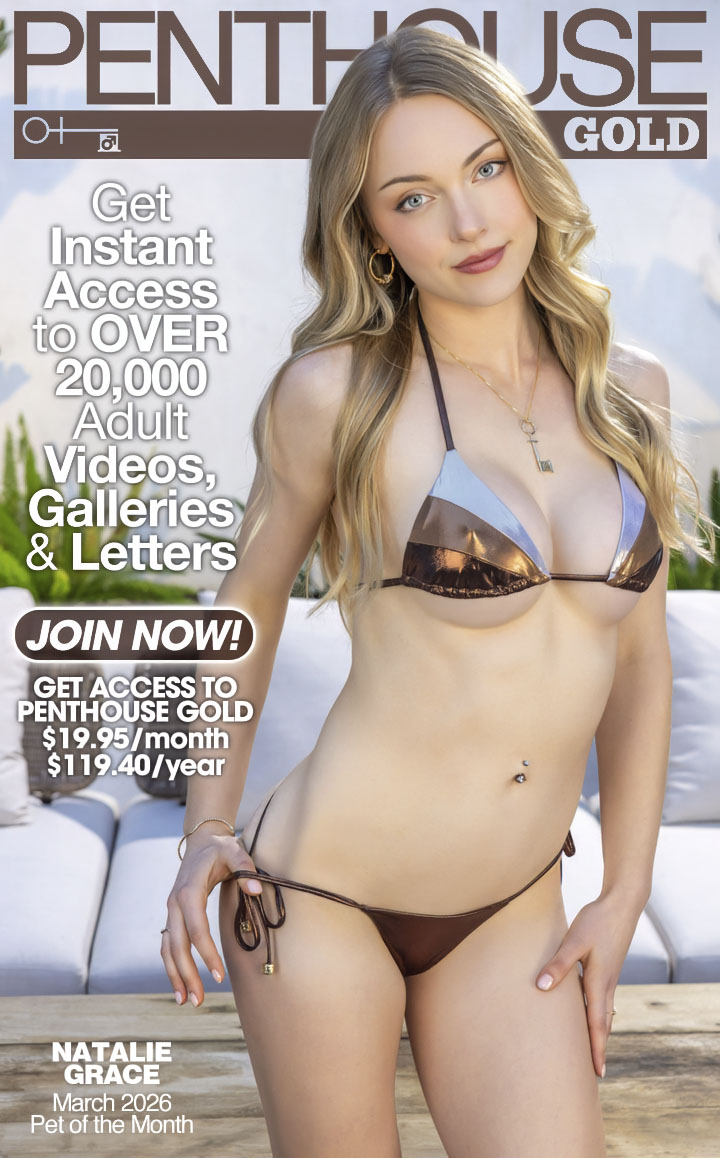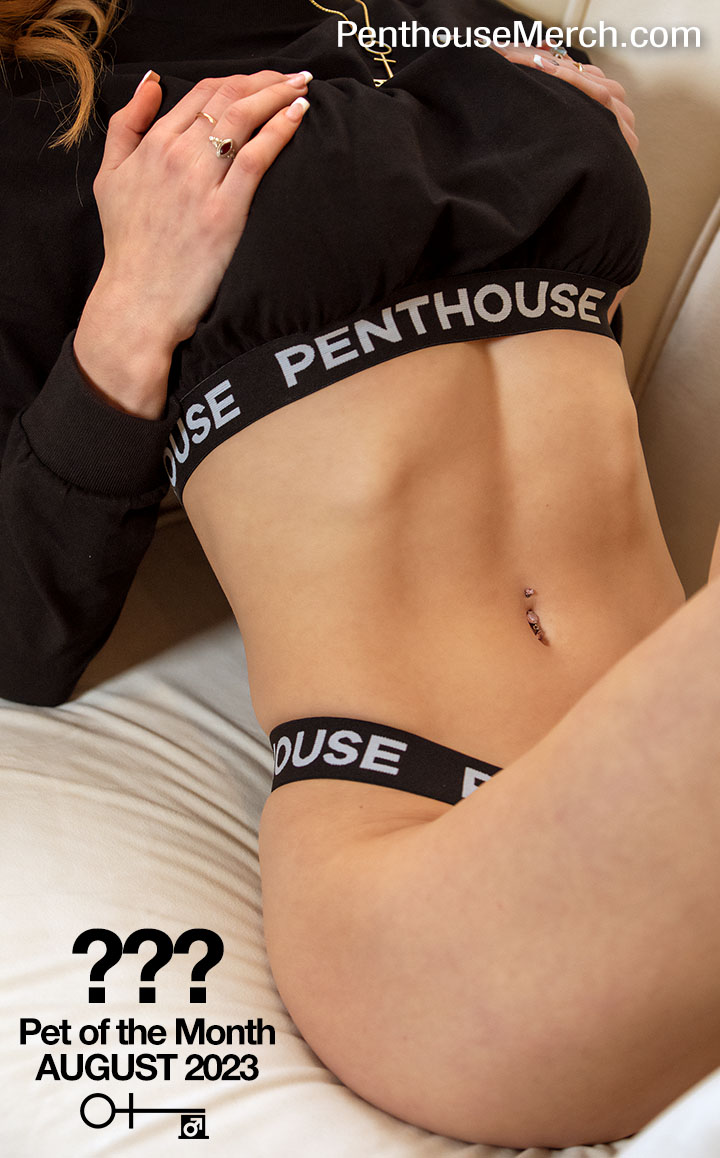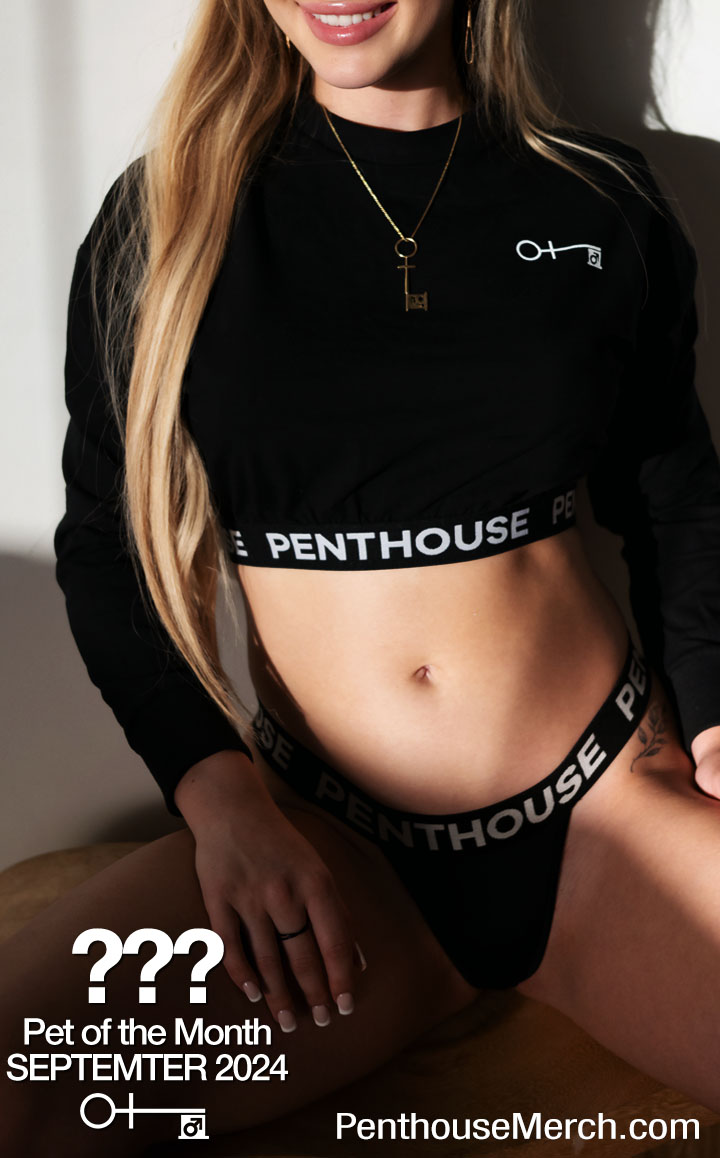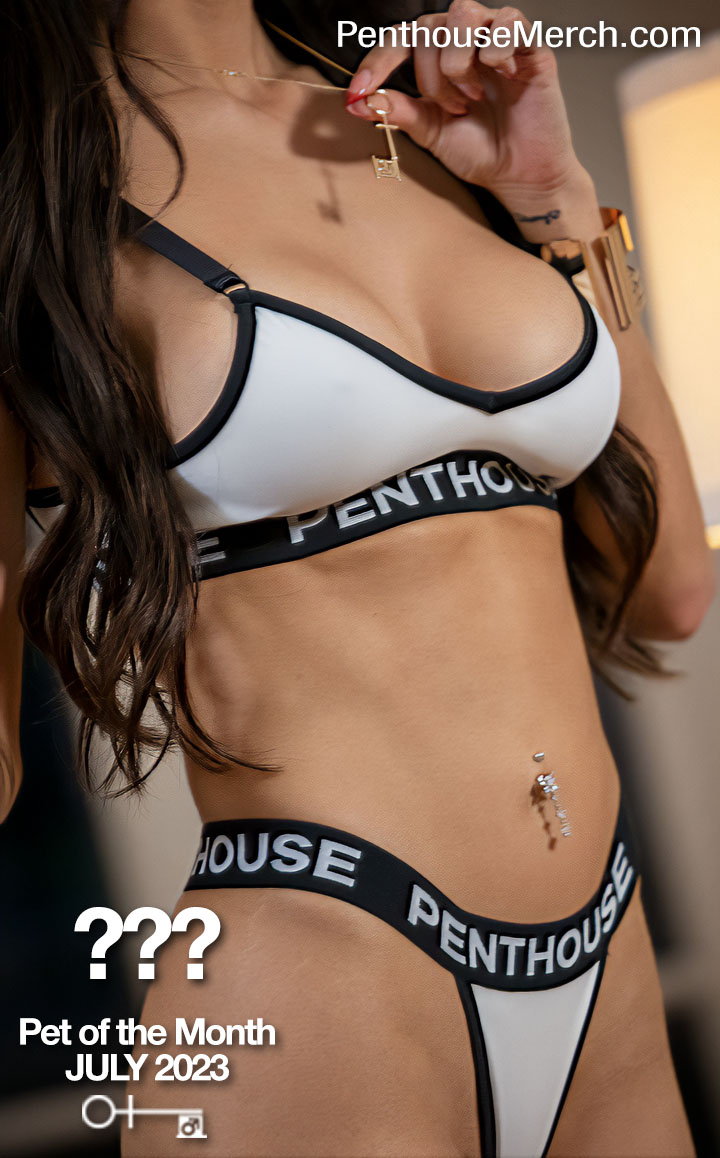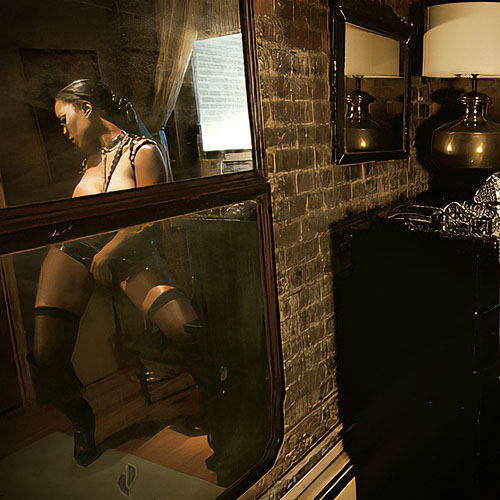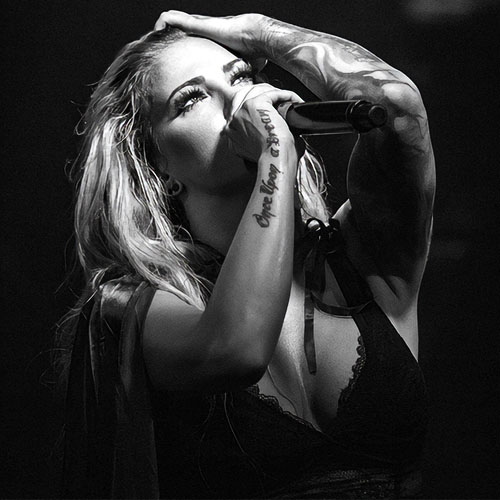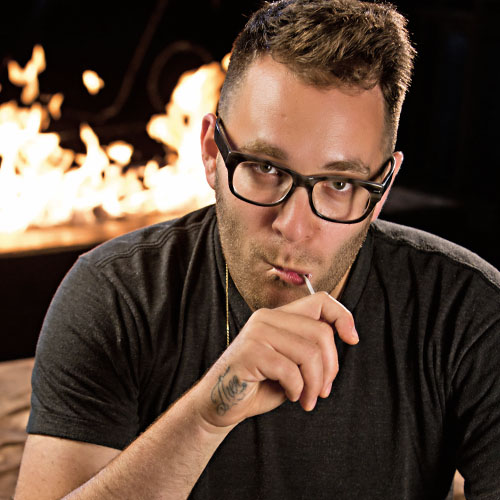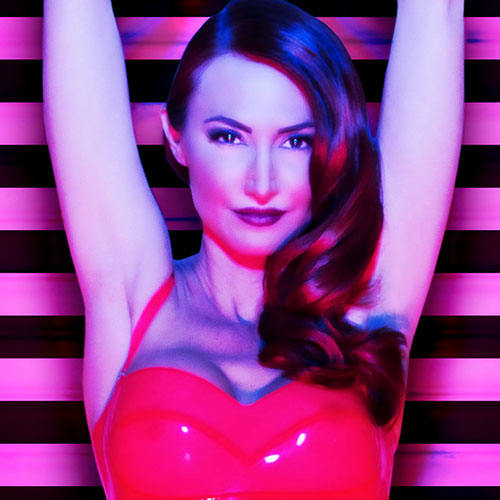Social media entrepreneurs Adam Grandmaison and Lena Nersesian say they’re “so fucking boring.” Fans who watch them smoke weed with rappers, hang out with porn stars, and have three-ways with friends might disagree.
We Should All be This Dull
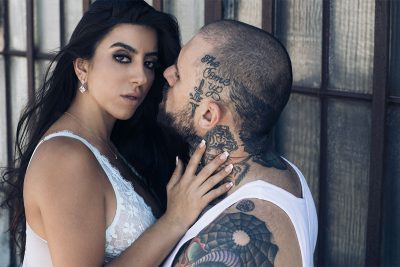 “I think people would be surprised to find out what a humble, normal, real relationship we have,” says Adam Grandmaison.
“I think people would be surprised to find out what a humble, normal, real relationship we have,” says Adam Grandmaison.
“Yeah,” agrees his partner, Lena Nersesian. “If someone pointed a camera on us and watched our lives, they’d be like, ‘These people are so fucking boring.’”
The thing is, Grandmaison and Nersesian really do have cameras pointed at them much of the time, and the people watching the footage don’t seem inclined to wander away. In just three years, under the nom de web Lena The Plug, Nersesian has cultivated a seven-digit following across a host of platforms, including Instagram, Twitter, Snapchat, YouTube, and PornHub. Much of her content is explicit—she was 2018’s PornHub Celebrity of the Year, and Fleshlight unveiled a Lena The Plug model earlier this year. But on her more mainstream channels she also posts plenty of conventional lifestyle-vlogger material: updates on her personal life, tours of her new house, and cheerful videos of herself and Grandmaison on vacation.
Meanwhile, Grandmaison, known online as Adam22, presides over an ever-growing array of business enterprises. A BMX rider himself, he started out in 2006 running a successful BMX website called The Come Up. Three years later, he opened his clothing line and retail outlet OnSomeShit, and then, in 2015, launched his podcast, “No Jumper,” a loosely formatted interview show that showcases Grandmaison’s ear for new and breaking underground rap talent, and his knack for drawing those same artists into candid and unguarded conversations. (He did important early interviews with the likes of XXXTentacion and Lil Pump.) These days, “No Jumper” is one of the key publicity stops for any aspiring SoundCloud rapper—the bigger your personality, the better.
Grandmaison is currently toying around with writing a book, having been inspired by Howard Stern’s latest memoir, Howard Stern Comes Again. The comparison seems apt—like Stern, Grandmaison is a bad boy with a talent for talking, a fascination with the porn world, and not-so-secret entrepreneurial ambitions. By that token, Nersesian is, with her sunny personality and a sexual forthrightness that belies her conservative upbringing, the girl-next-door whose presence brings out Grandmaison’s sweeter side.
“Our fans are fascinated by our dynamic,” Grandmaison says. “I seem to be such a rough, blunt, aggressive person and she seems so sweet, that it’s hard to imagine how that dynamic plays out. In reality, it works out great.”
I spoke to Grandmaison and Nersesian over the phone from their home in Los Angeles to learn more. It may not have been the wildest threesome they’ve ever participated in, but they were characteristically open with me.
They say that one reason actors tend to date other actors is that they’re the only ones who understand their lifestyle. Is that also true of people in the socia media world?
Adam: Definitely. I’ve seen the transition in how people act around us as we’ve gone from being regular people to being more well-known. For instance, we have some movers who’ve known us for a while, and they keep moving us from house to house, and the houses keep getting bigger. Every time we see those guys, they go, “Whoa! This is insane! This has been happening really fucking fast.” For me, I keep forgetting that shit has changed a lot for us.
Lena: There is so much maintenance that goes into our presence. In most companies, the person running it will have someone they can hand things off to. But if the whole business is your personality, that’s not possible. I can’t tell my assistant to log into my Twitter and go be me, you know? It becomes a little draining—did you update your Snapchat today? Did you update your Twitter? Your personality has to be out there constantly, and it has to be consistent for you to continue doing what you do.
Adam: And in Lena’s case, she’s constantly choosing between doing adult content that she’s going to make more money from, or doing the YouTube content that might appeal more to her female fans, but which is much harder to monetize.
What would be the ideal ratio between those two streams for you?
Lena: Honestly, the adult stuff is probably 90 percent of my output—and that probably represents 99.9 percent of my income.
So as much as I might like it to break down fifty-fifty, I can’t just take a break from doing adult content for a whole month and act like it’s going to be okay.
What were you two like in high school? Would a guidance counselor have figured you were entrepreneurs in the making?
Adam: I think my parents and teachers were probably disappointed in me, because they could tell I was smart, but I just had a total inability to funnel that into anything positive. I wore all black and rode my BMX bike to school every day. I never went to the prom, I never went to any dances, I didn’t socialize all that much. The only stuff I was into was rap music, hardcore music, and riding my bike. That was it.
Lena: If Adam’s report card said, “Doesn’t play well with others and refuses to follow the rules,” mine was the complete opposite. I loved going to school—for me, it was an escape from being at home. I joined all sorts of activities. I think people sometimes assume I was a bad kid with a bad upbringing and that’s how I ended up where I am now. But I see it the opposite way. I don’t think you can be successful at what I’m doing if you’re not smart about it.
If you found yourself in a room with a bunch of “straight” businessmen, do you think underneath it all you’d actually have a lot in common with them? In the end, isn’t it all just business?
Lena: Not entirely. I think a lot of business talk is oriented around how groups work together, or how to get the most out of your employees. I actually went to a Tony Robbins seminar once, but it didn’t really apply to me—I think I was the only person in the room without a large staff and whose business was basically, you know, myself.
You can also get away with behavior that the CEO of a Fortune 500 company probably couldn’t—smoking weed, talking about three-ways. But at the same time, does that limit you in terms of the opportunities you can pursue with more mainstream companies? Or do those kinds of partnerships not interest you?
Adam: I guess we’re operating on the more illicit side of things. But at the same time, it’s really a goal of ours to work with brands in a good way, and maybe persuade, say, a more mainstream fashion brand that there’s no reason they can’t partner with an influencer who’s also a sex worker, or advertise on a podcast where everyone is smoking blunts the whole time.
Lena: I think the reality is, we will mostly get brands that are in that space. We are not going to be getting Target anytime soon. But that’s great, because we won’t have to change who we are just because some brand is advertising with us.
There’s an interview you did in 2017, Adam, where you said if you ever faced a PR crisis, you thought you could survive it because of the relationship you’ve built with your fans. Not long after, in March 2018, a pair of women accused you of sexual assault. You denied the allegations—but were you right? Did your brand take more of a hit than you thought it might?
Adam: That stuff really did threaten to hinder my brand. But at the same time, the fact that I’ve been so open and honest, and Lena and I have such an open, extremely public relationship, that allowed this story to not be so big. When Kevin Spacey faced accusations, I don’t think any of us really felt like we knew Kevin Spacey. But if someone says something about me, they’re more willing to give me the benefit of the doubt in a way that someone with a less direct connection with their fans might not.
When you talk with others who make their living from social media, what are the things that make you all nervous?
Adam: Back in 2017, the YouTube “Adpocalypse” really alarmed a lot of us. [See “YouTube on a Tightrope,” on page 36.] I think at that time, I was making $50,000 a month on YouTube, and then overnight I saw that turn into $5,000 a month. That was a huge, eye-opening experience. You can’t get too comfortable—you need to pursue every moneymaking opportunity you can, whether it’s brand deals, ads during the podcast, livestreaming my fans’ music for donations, merchandising.
Lena: Your job can be taken from you on any platform at any time. It’s up to them. I can make the same YouTube video that a beauty blogger would make and get no ads on it, simply because of who I am, not the content I put out.
Adam: Lena’s Instagram has been deleted for months at a time for no reason. It feels like there’s nothing you can do to make social media platforms actually give a shit about hot girls. If this were an issue about a certain religious group getting their Instagrams deleted, it would be front-page news. But no one is inclined to feel sympathetic about hot girls.
Lena: Twitter is actually the only online platform where sex workers are really safe. They don’t take down nudity. It’s definitely the most friendly platform for me.
Adam, if you had to restrict yourself to just one platform, what would it be?
Adam: I’m a YouTube guy. I love long-form content. Of course, when we do a long podcast with five minutes in the middle about white supremacist violence, even though we are obviously against it, that entire podcast will get age-restricted and demonetized. If you’re someone like [Philip] DeFranco, who’s talking about real news, he gets demonetized practically every day. Whereas if you’re a makeup blogger or doing cooking videos, you don’t have to deal with that. Nothing against makeup bloggers, but YouTube is kind of incentivizing people to make frivolous content. It sucks to see serious independent content from across the spectrum being treated so poorly. [Laughs.] Yeah, YouTube sucks.
Paul James is a playwright, editor, broadcaster, and a film and pop-culture commentator for such outlets as CBC Radio and Salon. He is the cohost of the podcast “Trash, Art & the Movies.” Follow him on Twitter: @myelbow
Photography by James Douglas











